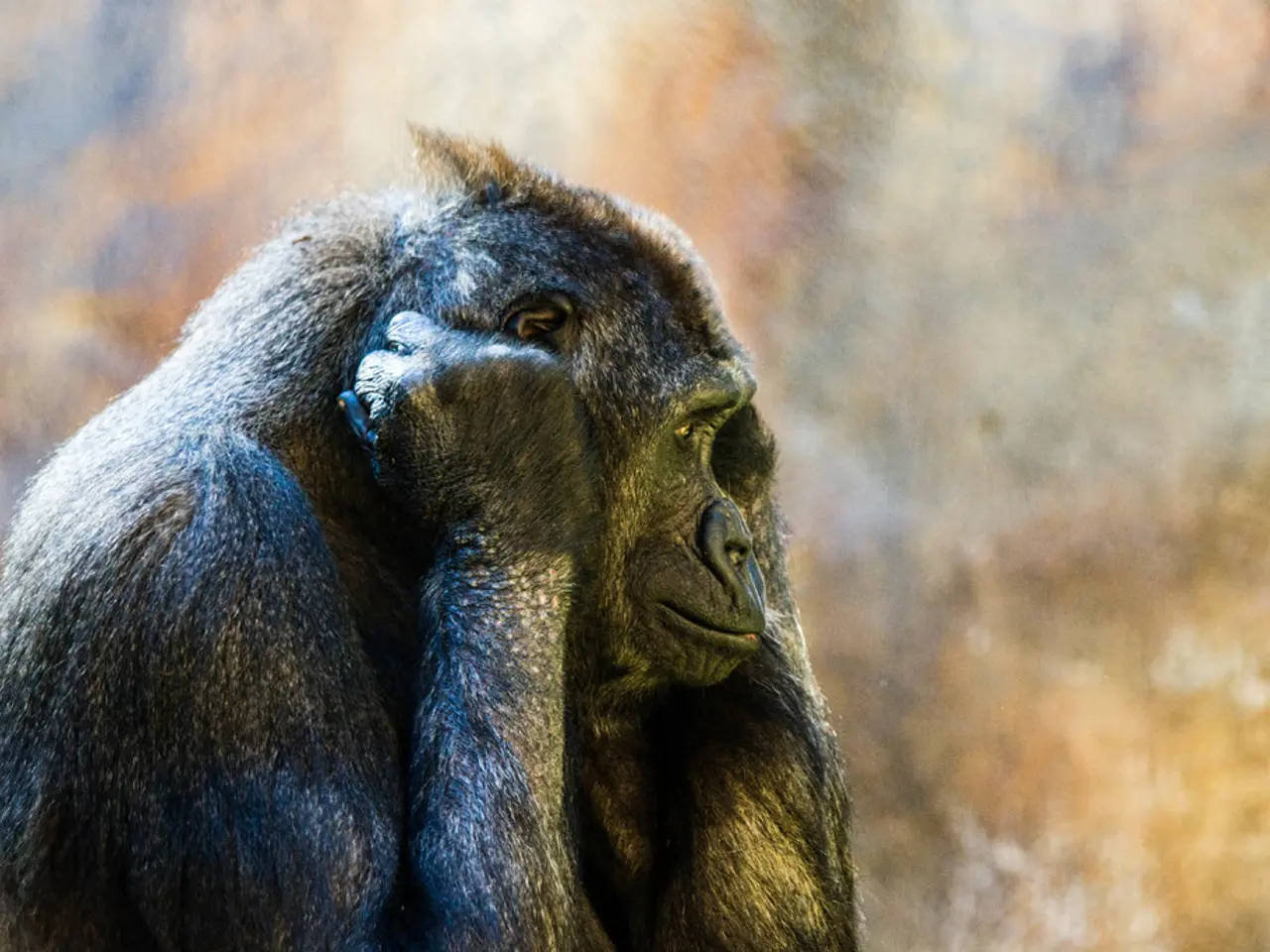Chimpanzees uttering genuine human phrases caught on remarkable video footage
Published on 8 September 2024
Recent research conducted by researchers at KTH Royal Institute of Technology, published in Scientific Reports, has shed new light on the communication abilities of our closest living relatives, the chimpanzees. The study reveals that chimpanzees are capable of vocal production learning, meaning they can imitate and acquire sounds they hear, including some resembling human words.
This discovery challenges the long-held belief that chimpanzee communication is mostly innate and genetically fixed. Instead, the research suggests that the neurological basis for complex vocal learning may be older and more evolutionarily shared between humans and chimpanzees than previously believed.
The study also reveals that young chimpanzees learn their communication styles primarily from their mothers and maternal relatives through social learning, rather than genetic inheritance from either parent. This finding underscores the significant role of cultural transmission in chimpanzee communication.
Ekström and his team concluded that the failure to demonstrate chimp speech abilities in the past was the fault of the researchers, not the animals. The unnatural conditions in which the animals were kept and separated from their mothers may have affected their ability to demonstrate their intelligence.
The study also suggests that chimpanzees may have the ability to voluntary jaw-voice coupling, contrary to previous beliefs. This ability is crucial for producing a wide range of sounds, including human speech.
In the wild, chimpanzees primarily communicate through gestures, but also use vocalisations. Clips of chimpanzees saying "mama" have been observed, indicating a level of complexity in their vocal capabilities.
These findings nuance the evolutionary narrative of language and communication, underscoring a shared, culturally influenced vocal capacity in our closest living relatives. The study may require a rethinking of our understanding of our relationship with chimps, emphasising inherited neurological traits alongside socially learned communication styles largely shaped by maternal influence.
Researchers studying animals should be cautious not to humanize them to avoid bias. However, underestimating the capabilities of animals can lead to a lack of understanding of their true potential. The latest research on chimpanzee vocal production serves as a reminder of the importance of rigorous analysis and ethical treatment of animals in research.
According to Science Alert, the study suggests that our neurological audiovocal system could be older than suspected. This discovery challenges the traditional timeline for the development of complex vocal capabilities and offers new insights into the evolution of human speech.
- Despite the long-held belief, this recent study in Scientific Reports asserts that the neural foundation for complex vocal learning in chimpanzees may be more evolutionarily preserved than previously imagined.
- The study reveals that young chimpanzees primarily acquire communication styles from their mothers and maternal relatives through social learning, rather than genetically from either parent.
- This expansion of our understanding of chimpanzee communication abilities challenges the notion that their communication is predominantly innate and genetically predetermined.
- In the field of environmental science, this research opens doors for further exploration of the shared audiovocal capacity between humans and our closest living relatives, the chimpanzees.
- In an era dominated by technology, this scientific breakthrough could have profound implications for the way we perceive and interact with other species, particularly our primate cousins.
- This study also invites us to reconsider our approach to relationship-building with animals, advocating for an appreciation of both evolutionarily shared traits and culturally shaped communication styles.
- As researchers delve deeper into the complexities of chimpanzee vocal production, they may find parallels with human speech, offering insights into the development and evolution of language throughout history.
- In the realm of health-and-wellness, understanding the neurological basis for complex vocal learning in chimpanzees could have implications for mental health and cognitive development, furthering the field of neuroscience.




